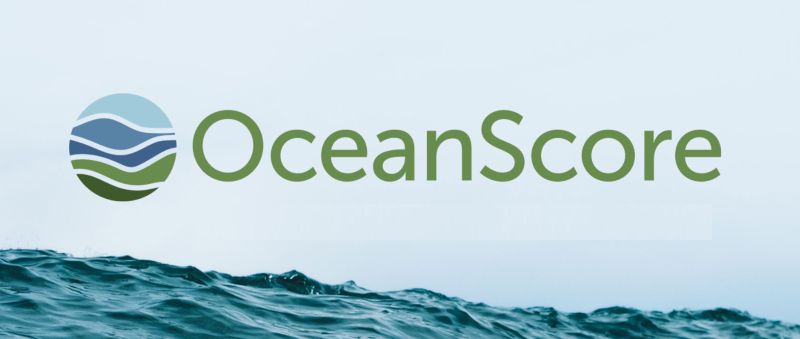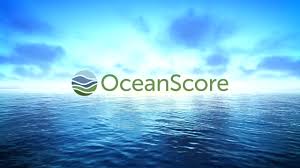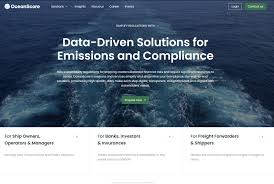OceanScore, a German company based in Hamburg that provides GHG (greenhouse gas) data management services for ships, announced on September 10, 2024, that Greek shipping (owners and operators) could face potential penalties exceeding €175 million (approximately ¥27.5 billion) following the enforcement of FuelEU Maritime regulations starting next year. At the same time, the company noted that Greek shipping could mitigate this economic risk by utilizing alternative fuels.
OceanScore’s estimate was based on the average GHG intensity of past voyages, calculating the impact of FuelEU regulations on over 370 Greek shipping companies.
(Text by Hiro Yamamoto)
Photo courtesy= OceanScore

According to the estimate, crude oil tankers, RoPax (roll-on/roll-off passenger ferries), bulk carriers, and container ships are expected to be the most affected segments. Tankers could face potential penalties of €55 million (32%), while RoPax vessels might incur penalties of €44 million (25%).
Among the largest Greek shipping companies, the top three alone are expected to face a total of €25 million in penalties. The largest Greek shipping company could face a total of €11.75 million, averaging €309,200 per ship. The average penalty for all Greek shipping companies is estimated at €84,200 per ship, with the second and third largest Greek shipping companies facing total penalties of approximately €6.5 million each.
■Investment Needed to Address Compliance Deficiencies
According to OceanScore, around 2,100 ships owned by Greek shipping companies are expected to have a negative compliance balance of 71,666 tonnes of VLSFOe (Very Low Sulfur Fuel Oil equivalent). The company explains that this is because the average GHG intensity of all ships owned by Greek shipowners is 90.81 grams of CO2e per megajoule (MJ) of energy, compared to the initial hurdle rate of 89.3 grams CO2e/MJ set by FuelEU. This figure was based on the 2022 baseline of 91.16 grams CO2e/MJ, which was reduced by 2% and is set as the initial target for regulations from 2025 to 2030.
Ralf Garrn, OceanScore’s co-Managing Director, commented, “This is just the starting point for Greek shipping and not the final scenario. It will greatly depend on how companies utilize biofuels, low-carbon technologies, and the FuelEU pooling (offsetting) mechanism.”
“Ships with structures that could incur very high penalties could benefit the most by switching to biofuels, turning penalties into an opportunity to generate compliance surpluses and profits,” he added.

■LNG Fuel Reduces Emissions
Mr. Garrn also pointed out that using LNG (liquefied natural gas) as fuel could reduce emissions by about 25%, positioning Greek LNG shipping companies particularly well to leverage pooling opportunities under FuelEU. For instance, two of the largest Greek LNG shipping companies hold surpluses of 82.1 tonnes and 45.2 tonnes of VLSFOe, respectively.
Mr. Garrn further explained that using widely compatible biofuels is likely the easiest option for most shipping companies to reduce their carbon footprint in the short term. However, he noted that biofuels are more expensive than fossil fuels, costing about €1,300 per tonne of VLSFOe, and due to their lower calorific value, more fuel is needed.
Switching to biofuels to reduce CO2 emissions would also lead to cost savings, as it would reduce the current FuelEU penalties, which are €2,400 per tonne of VLSFOe, and minimize the need to purchase EU Emission Allowances (EUAs) under the EU Emissions Trading System (EU-ETS), Mr. Garrn pointed out.
In its current estimates, OceanScore suggests that Greek shipping companies will need to purchase around 8.23 million EUA units for ships calling at EU ports to meet the current EU-ETS obligations. At the current carbon price of €66 per tonne of CO2, this equates to approximately €543 million.

■Significant Potential for Cost Reduction
The company explained that by replacing heavy fuel oil (HFO) with rapeseed-based biofuel at €1,200 per tonne, container ships could achieve a cost saving of €1.3 million against the FuelEU penalties. This would provide a positive financial impact of €241 per tonne saved for FuelEU penalties and €55 per tonne saved for EU ETS.
OceanScore also released estimates in April 2024 regarding the impact of EU-ETS on Japanese shipping. According to these estimates, after the full application of the EU-ETS begins in 2026, the cost of EUA for Japanese shipowners and ship management companies is expected to reach €100 million (approximately ¥16.5 billion) annually. The EUA for around 370 Japan-managed ships calling at EU ports is estimated to reach 1.7 million units annually, equivalent to about 2% of the 80 million EUA units for global shipping per year.
The company has also launched the “FuelEU Planner,” the first in a series of solutions scheduled to start next year, allowing shipping companies to assess different operational and investment scenarios and evaluate the commercial impact related to FuelEU compliance.
〆オーシャンスコア(OceanScore)はFuelEU マリタイムのギリシャ船主に対する潜在的コスト(potential costs)を1億7500万ユーロと試算した。
船舶のGHG(温室効果ガス)データ管理サービスを提供する独オーシャンスコア(本社・ハンブルク)は2024年9月10日、FuelEU マリタイム(FuelEU)が来年から施行されることに伴い、ギリシャ海運(船主、運航船社=オペレーター)は1億7500万ユーロ(約275億円)を超える潜在的罰金(ペナルティー)に直面する可能性があるとの試算を発表した。同時にギリシャ海運は代替燃料を使用することで、経済的リスクを軽減することも可能だとしてきしている。
今回、オーシャンスコアは、過去の航海の平均温室効果ガス(GHG)強度に基づき、370社以上のギリシャ海運に対するFuelEUの影響を算出した。
その試算によると、原油タンカー、RoPax(車両輸送フェリー)、バルカー、コンテナ船のセグメントが最も大きな影響を受けると結論付けた。タンカーが5500万ユーロ(32%)、RoPaxが4400万ユーロ(25%)の潜在的罰金を受ける見込みだ。
ギリシャ海運で最大手3社だけで合計2500万ユーロの罰金が見込まれ、最も大きいギリシャの海運の場合、総額1175万ユーロ、1隻あたり平均30万9200ユーロの罰金に直面する。
全ギリシャ海運の平均罰金額は1隻あたり8万4200ユーロ、トップスリーのギリシャ海運のうち、2番手、3番手の会社はそれぞれ約650万ユーロの総罰金が見込まれる。
日本語の続きは日本海事新聞で読むことができる。
